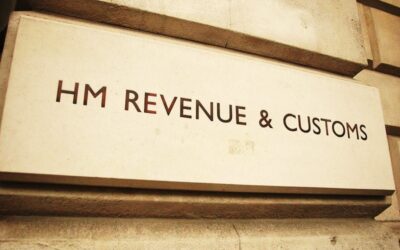-
Minimal efforts to close the tax gap, despite HMRC producing a return on investment of up to 18:1 with compliance work.
-
DWP to receive an extra £112m a year to tackle fraud, but HMRC only to receive £15m. Once again, the government is prioritising going after benefits fraud while failing to take tax fraud seriously.
-
R&D tax relief schemes changed, but attempt to make relief less attractive to those claiming fraudulently will reduce benefits to small and medium businesses conducting genuine R&D, and will do nothing to recover previously overpaid amounts.
-
Changes in the threshold for the 45% tax rate aren’t as progressive as they seem. While someone on £150k will pay what is worth an extra 1% of their income, the change to someone on £1.5m is less than 0.1%.
On Thursday 17 November the Chancellor Jeremy Hunt unveiled his Autumn Statement 2022.
Hunt, the fourth UK chancellor of 2022, delivered this budget against a backdrop of financial uncertainty. The chancellor has called this a plan to tackle the cost of living crisis and to rebuild the UK economy.
While numerous news outlets have covered the major stories of the budget, at TaxWatch we are casting a forensic eye over the lesser covered tax stories.
Minimal efforts to close the tax gap
In an attempt to balance the governments books this budget features both cuts to public services and increases in taxes. There is a third option for the government to increase funds however, though it seems to have been overlooked – and that is reducing the tax gap.
HMRC estimates that in 2020-21, £32bn of tax went uncollected. Of this, 45% – or £14.4bn – is a result of fraud. These numbers are almost certainly an underestimate, as they don’t include profit shifting, which academic studies have found to be in the region of £20bn, nor do they include the amounts lost to fraud and error in the coronavirus support schemes, which is estimated to be around £4.5bn.
The solution to recovering significant amounts of this lost tax is through investment in compliance. Just last month during a Public Accounts Committee oral evidence session Jim Harra, the head of HMRC, said “On average, for every pound that we spend in our customer compliance group, we recover about £18 worth of additional tax revenues.” Dame Meg Hillier MP responded “that’s a helpful pitch to the treasury.” At TaxWatch, we agree.
Justin Holliday, HMRC’s Chief Finance Officer and Tax Assurance Commissioner, also stated during this session that “to get £1 billion off the tax gap, you would need between a twentieth and a tenth of £1 billion”.1 This is a ridiculously good return on investment.
Despite this, there was little in the way of investment in HMRC announced. There is to be “a further £79 million over the next 5 years” in order to tackle tax fraud. While any investment in HMRC is good news, £15.8m a year is small change. The Department of Work and Pensions is to receive an extra £280m between now and 2024-25 to tackle fraud, error, and debt in the benefits system – working out at £112m per year.
Last year TaxWatch revealed that the UK Government had given the DWP £613m to tackle pandemic related benefits fraud, while only giving HMRC £155m to tackle Covid related tax fraud. This is despite the fact that fraud and error in HMRC administered Coronavirus Support Schemes is thought to be worth billions more than the increase in Covid related benefits fraud.2

The Government have calculated that over the course of five years this £79m investment should see a return of £725m. That’s an investment gain of £646m, with a total return on investment of 818%. With such healthy returns for so little invested, it is unclear why the government is again choosing not to put more money into HMRC.
R&D reform (again)
Its no surprise that reforms to the R&D relief schemes were featured in the Autumn Statement. Looking at the past few years of budgets, reference is made to reforming R&D reliefs in the Spring Statement 2022,3 Autumn Budget 2021,4 Spring Budget 2021,5 Spring Budget 2020,6 and Spring Statement 20197 demonstrating the concerns around these tax reliefs. It’s likely that there will be further reform at the next budget/statement/fiscal event. Limited changes to the schemes were made in Finance Act 2022 (coming into existence in April 2023) to extend claimable expenditure to cloud computing costs and data and requiring more detailed information to be submitted with claims. These latest reforms however have been fairly substantial, and will affect claims from 2022-23.
Today’s announcement fundamentally changes the benefits in the two schemes, known as the SME scheme (Small and Medium-Sized Enterprise scheme) and the RDEC scheme (Research and Development Expenditure Credit) scheme which is mainly for large businesses but can be claimed by SMEs in some cases.
There have long been concerns about the increasing costs of R&D tax relief (from £1.1bn in 2010-11 to £6.6bn in 2020-218) and levels of error and fraud in the schemes9 . HMRC estimated fraud and error in R&D reliefs in 2021-22 was £469m but calculated that 7.3% of SME scheme claims were incorrect while only 1.1% of RDEC scheme were incorrect. t. The Chancellor referred to the high level of fraud and error in announcing a reduction in the additional corporation tax deduction for R&D expenditure in the SME scheme from 130% to 86% and the SME credit rate reducing from 14.5% to 10%. In contrast the RDEC scheme has been made more generous with the credit available increased from 13% to 20%. These adjustments have been described as a rebalancing of rates but in fact are predicted to result in a net reduction in the costs of both schemes across the next few years.

The statement describes the changes as a move towards a ‘single RDEC-like scheme for all’ with the intention of consulting on the design of a single scheme for the future alongside consideration of further support for ‘R&D intensive’ SMEs without significantly increasing the cost of the overall scheme.
The reduction in the SME scheme benefits appears to be a blunt instrument to deal with well-discussed problems with boutique R&D claims firms said to be using no win no fee arrangements to push the boundaries of R&D definitions and claimable costs10. This will likely make the scheme less attractive to those entities, as there will be a smaller amount to take their cut from, but will obviously have an immediate impact on the support given to SMEs carrying out genuine innovation in the field of science and technology. While anything intended to reduce the amount of error and fraud in the tax system is good news, this should not overshadow the significant sums already believed to have been erroneously claimed in earlier years. As mentioned above, investment in compliance work by HMRC is depressingly low compared with the potential return on that investment, and while there are suggestions that around 100 staff have now been deployed to pursue enquiries into more past R&D claims, there is a risk that significant amounts of overclaimed amounts will never be recovered.
Top rate of tax – not as progressive as it sounds
The 45% top rate of income tax was scrapped under Truss and Kwarteng, only for a U-turn to see it reinstated. Hunt announced today that the government will decrease the additional rate threshold from £150,000 to £125,140 in April 2023, saying “those in the highest income households will contribute more.”
Arun Advani, an Associate Professor at the Department of Economics at the University of Warwick, has conducted some analysis as to what this means in practice.11 Lowering the threshold will raise around £850m in year one, rising to just over £1bn by 2026-27, with the increase affecting the top 2% of earners. That’s not an insubstantial amount of money, but, its important to note that what it raises is not particularly progressive. A person earning £150k a year is going to pay another £1,250 in tax, almost 1% more of their income. A person earning £1.5m is also going to be paying another £1,250 in tax, less than 0.1% of their income. While it may make headlines, in reality, the very rich won’t really be affected.
1Public Accounts Committee, 20 October 2022, https://parliamentlive.tv/event/index/4b5df068-66e0-4d62-a65b-8a073cd65253
2Funding to fight covid related tax and benefits fraud, TaxWatch, 29 December 2021, http://13.40.187.124/covid_fraud_spending_dwp_vs_hmrc/
3Spring Statement 2022, Chancellor of the Exchequer, March 2022, https://assets.publishing.service.gov.uk/government/uploads/system/uploads/attachment_data/file/1062708/Spring_Statement_2022_Print.pdf
4Autumn Budget and Spending Review 2021, HM Treasury, 27 October 2021, https://assets.publishing.service.gov.uk/government/uploads/system/uploads/attachment_data/file/1043688/Budget_AB2021_Print.pdf
5Budget 2021, HM Treasury, 3 March 2021, https://assets.publishing.service.gov.uk/government/uploads/system/uploads/attachment_data/file/966868/BUDGET_2021_-_web.pdf
6Budget 2020, HM Treasury, 12 March 2020, https://www.gov.uk/government/publications/budget-2020-documents/budget-2020
7Spring Statement 2019, Chancellor of the Exchequer, Spring 2019, https://assets.publishing.service.gov.uk/government/uploads/system/uploads/attachment_data/file/785618/WMS_final_Commons.pdf
8Corporate tax: Research and development tax credits, Gov.uk, 29 September 2022, https://www.gov.uk/government/statistics/corporate-tax-research-and-development-tax-credit
9Huge cost to taxpayers of HMRC research & development initiative comes out in the wash, The Times, 31 October 2022, https://www.thetimes.co.uk/article/huge-cost-to-taxpayers-of-hmrc-research-development-initiative-comes-out-in-the-wash-czn9mxnhs
10Formal meeting (oral evidence session): Draft finance bill 2022-23, UK Parliament Committees, 14 November 2022, https://committees.parliament.uk/event/15744/formal-meeting-oral-evidence-session/
11Arun Advani, Twitter, 16 November 2022, https://twitter.com/arunadvaniecon/status/1592993284712173568



